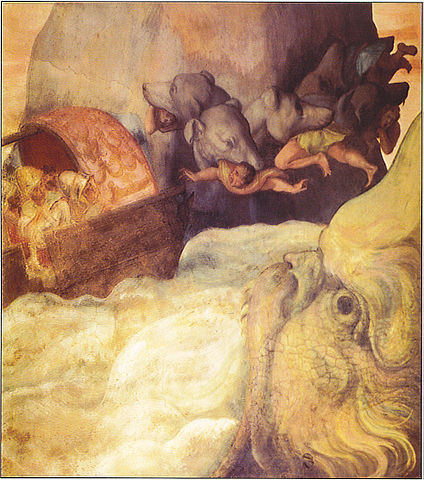On April
24, 2014 I was a speaker and presented a talk entitled "The Perennial Issue of Parallel
Imports and Border Enforcement: Canada's Version of ACTA - Bill C-8" at
the 22nd annual Fordham IP conference.
Here's
a summary of my talk:
Bill C-8
is now pending before Canada’s Parliament. According to the Legislative
Summary:
Canada has not
explicitly indicated its intention to ratify ACTA by introducing Bill C-8...
However, when questioned on this issue by the Committee, the Honourable James
Moore, Minister of Industry, and his deputy minister stated that although the
bill is intended to respond to domestic pressures, it brings Canada in line
with ACTA.
According to the IIPA, “Bill C-8 should be improved and then enacted as
quickly as possible”. There is, however, concern that Bill C-8 goes far beyond
what is required in terms of anti-counterfeiting, even as required by ACTA.
This would be controversial enough, especially since ACTA shows no sign of
imminently or even ever coming into force. Moreover, there is reason to believe
that Bill C-8 could – whether inadvertently or otherwise – enable the use of
copyright and even trade-mark law to block parallel imports, which are
legitimate by definition and which have been legitimized by the Supreme Court
of Canada.
Here are
some questions I would have liked to see discussed more but the Moderator had
other ideas:
- How likely is it that ACTA
will ever come into force?
- How can the USA possibly expect to credibly oppose parallel imports in the TPP after its Supreme Court confirmed in Kirtsaeng last year that copyright law won’t work to block parallel imports and US TM law is generally ineffective?
- Does the 301 process really have any consequences anywhere?
It’s always
interesting that so many who profess to believe in free trade and
believe that IP issues belong in free trade agreements are really hostile to
parallel imports and use every possible means to erect “private tariffs” in
these agreements.
The
antipathy to parallel imports makes me even more concerned that Bill C-8 may
have language in it that has been tainted by lobbyists and which may betray the
Government’s stated intentions NOT to impede parallel imports. Having made the winning arguments in Canada’s leading Supreme Court case on
parallel imports, I know
how tricky every word and the placement and history of every word in the statute
can be in this context.
Anyway,
my slides contain a number of examples of the inconsistent and ambiguous
wording that has crept into this bill that could impact the issue of parallel imports.
I’m also in good company here with Prof. Jeremy
de Beer who told the Committee:
I
admit that it was not easy for me, or a number of other IP experts
whom
I consulted, to understand the intricacies of this bill's
provisions
affecting parallel imports. The provisions are technical
and
complex, and they interact with the provisions of the existing
legislation
with effects that may not be immediately apparent.
The Committee hearings on Bill C-8 that took place last November were very unsatisfactory.
The Committee would not hear from me, but did hear separate presentations from
a father and son team of anti-counterfeiting lawyers from the same firm. This
hearing was another example of the quote attributed to Bismarck “If
you like laws and sausages, you should never watch either one being made”.
This is really too bad because I think that the Government
and its officials have some good intentions here. Nobody supports counterfeiting. However, somewhere along the line,
they are getting some not so good advice and the results could cause a lot of collateral damage to the free flow of legitimate goods - including medicines intended for sale in developing countries where lives may be at risk in the event of delayed delivery.
HPK






